I installed it on a test server. It looks great! The interface is modern and clear to me 
I found a small bug, but it's no big deal! The footer is not centered on the login page 


I installed it on a test server. It looks great! The interface is modern and clear to me 
I found a small bug, but it's no big deal! The footer is not centered on the login page 


I did a comparison between the e-mail that was sent earlier, before version 8.2.0, and now.
Before version 8.2.0

After 8.2.0

Today, I checked it on my mobile device. The user experience has also improved compared to the previous version, but there are still a few bugs.
In the App Store, when I click on an app to read the information. If I want to close the app information, there is no “X” button, so I have to click outside the information area, in the dark area of the page, to close it.

Similarly, in the App Store, some apps with information are not adjusted to the screen resolution, meaning you have to scroll left and right.

In the Event Log in the application, it is not possible to scroll right to check Details. As for the Event Log in the system, it works correctly.

The Services tab on the mobile device does not display “Memory Usage” and “Memory Limit.”

These are the only errors I found; the rest is fine.
I just remembered 
In the App Store, if app icons are black, you can't see them 
When generating the Application Key, did you select “Allow List All Bucket Names”? It only appears when selecting a bucket.
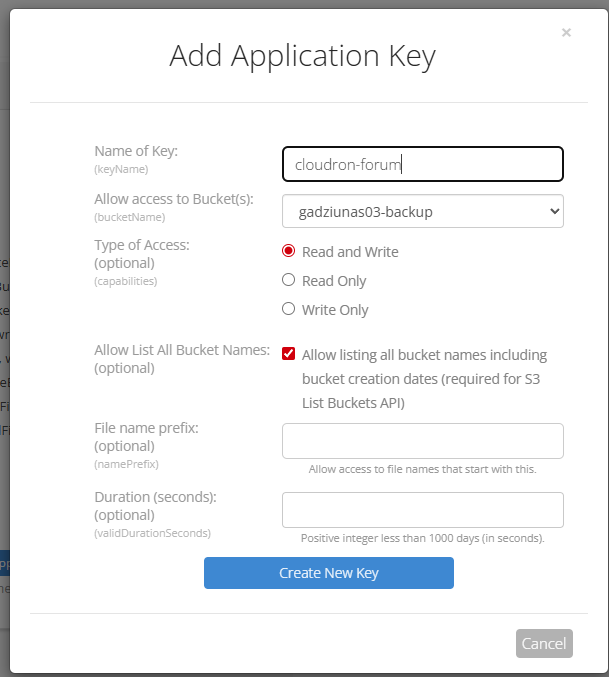
Today, I read about it on GitHub and the Uptime Kuma demo page shows the possibility of connecting MySQL. So, it is possible to bundle Uptime Kuma with MySQL.
While testing CDN in Bunny, I confirm the problem. You need to add a cofiguration to the nginx/apache config file in this case, so that the CDN does not take the "ghost" folder.
I no longer remember if there is an option in the new version of the Bunny panel, where you can select what folders it should not take.
The final solution as I wrote above add the config.
https://www.keycdn.com/support/ghost-cdn-integration
A cool solution in terms of security even on providers without an external firewall is "Match user" with "List Address" in the SSH configuration. You could use with a VPN and not have to worry about attacks.
In my spare time on a test server I played around with it, but until today I could not enable it. With the various configurations given on the internet it throws an error about an error every time.
Yahoo rejects your emails due to fresh domain registration.
Some popular email blockers from 1 to 6 months depending on the domain tld. A good solution to this problem is to send from yahoo email, icloud, gmail etc to your own email.
Send a normal long text message once a day and you can't send in bulk to start with from your mail because then they will permamently block your IP address.
At my place with a .cloud domain, I had a problem receiving iCloud emails for six months.
On top of that, Contabo IP addresses are popular among e-mail providers as spam servers.
I think I saw on the ubuntu forum that the 22.04 version had 5.4.x. So we can quietly breathe a sigh of relief. And in the future version 24.04 it already had a faulty version and then they started to fix it as it became known about this problem.
EDIT: https://ubuntu.com/security/CVE-2024-3094
Forum: https://askubuntu.com/questions/1509015/is-ubuntu-affected-by-the-xz-backdoor-compromise
I see you've found a solution, but you don't just add here, you need to change in other places too. I will add all the possible settings of what you need to set, so that other people know how to set it. Sorry that it took a long time. But my private life has been pounding me 
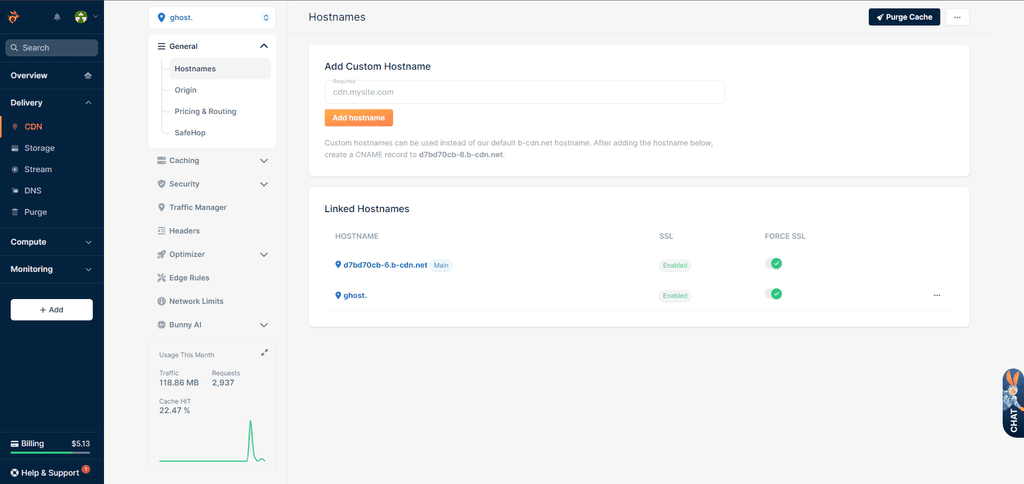

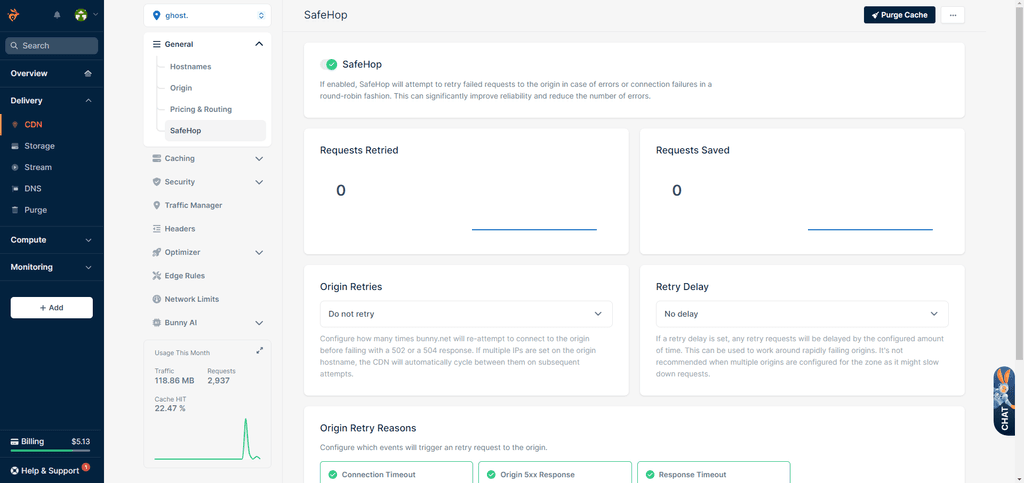
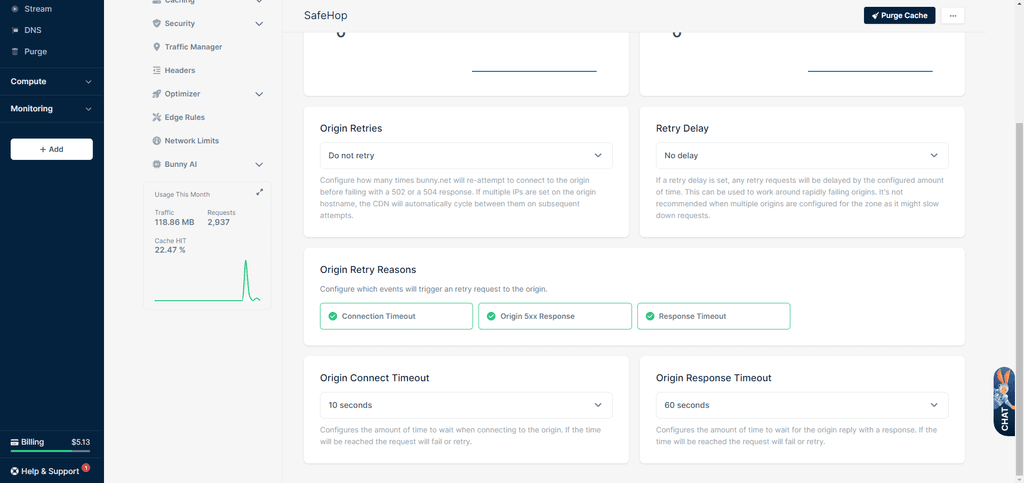
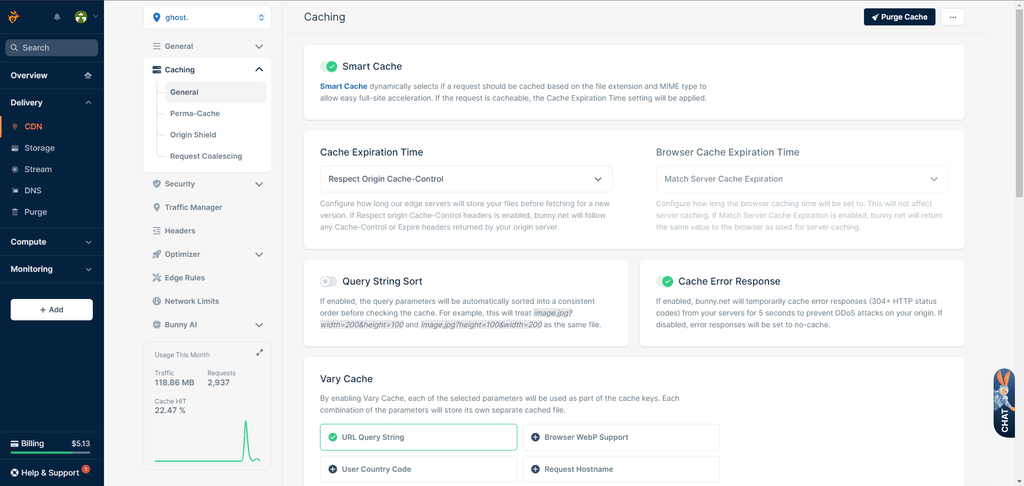
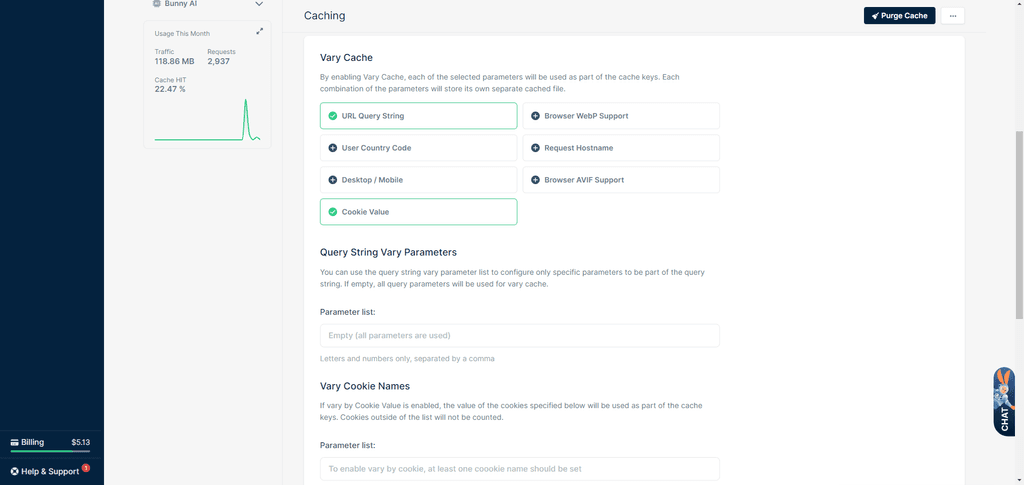
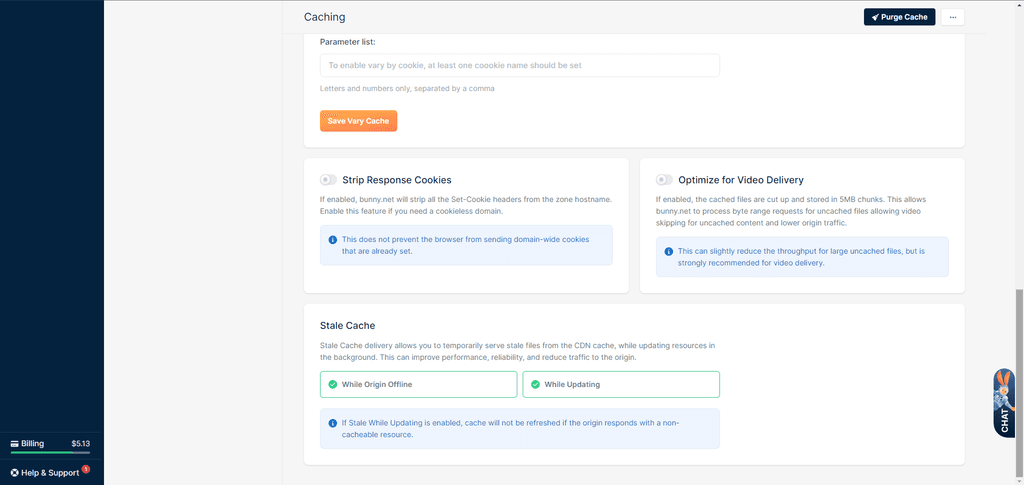
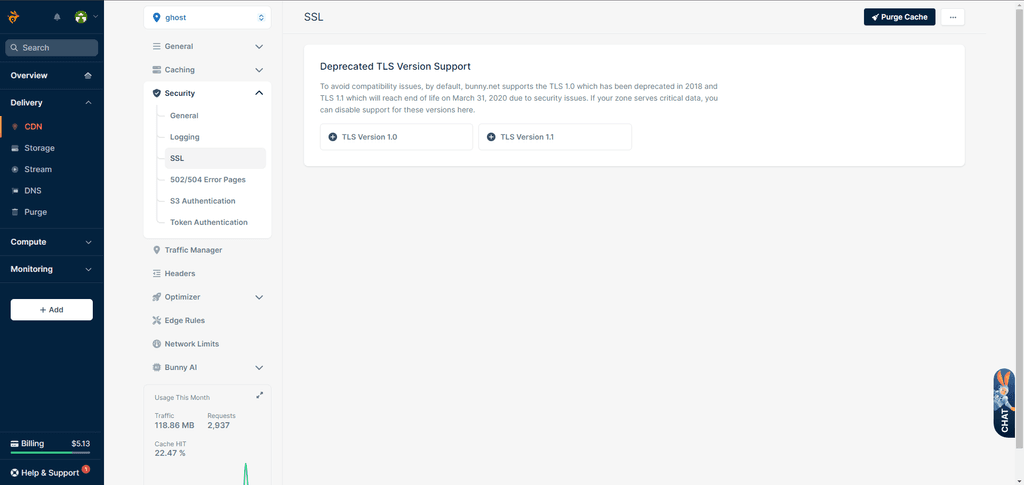
On the server where I have Nextcloud installed and backed up to Object Storage to Nuremberg and works fine. I will also give the settings from Memory Limit and Upload Part Size.
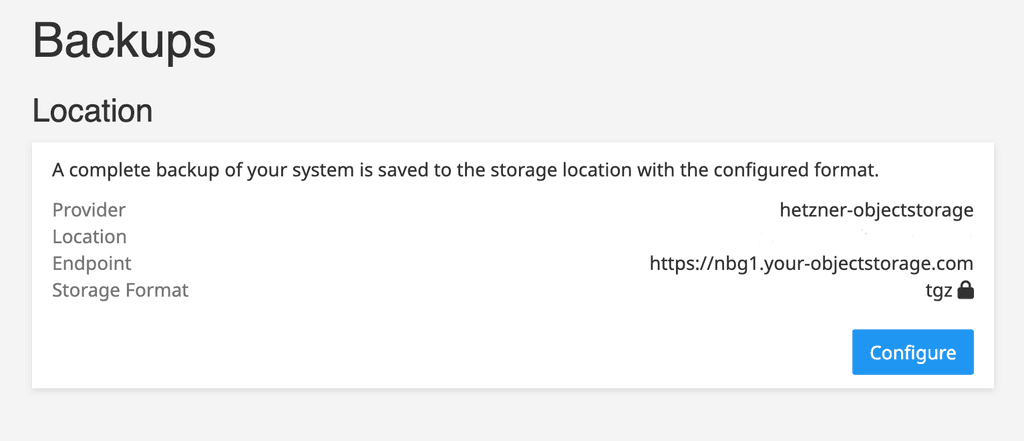
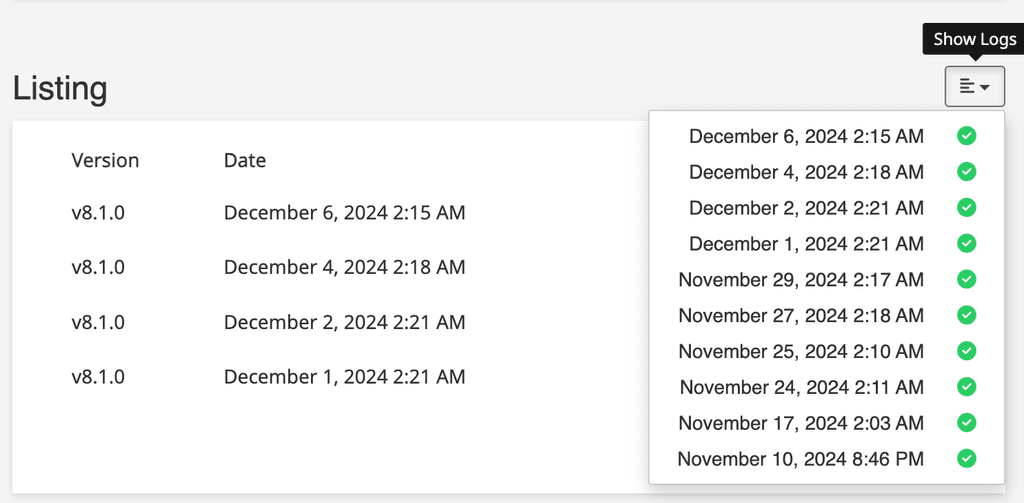
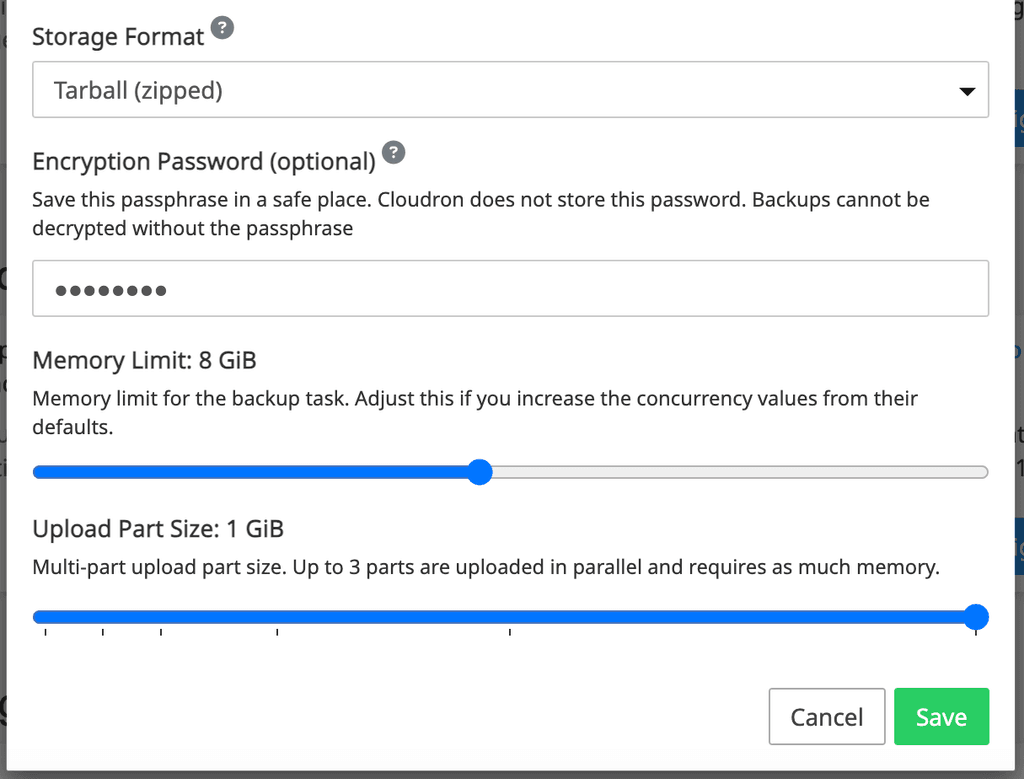
If you have servers in Falkenstein or Nuremberg and you send to Helsinki or vice versa then there maybe problems, because there is a broken fiber optic cable by probably by sabotage.
You have to update to version 24.04 yourself.
https://docs.cloudron.io/guides/upgrade-ubuntu-24/
I personally made a second server with Ubuntu 24.04 and did a Cloudron restore using a backup.
According to the pricing page, SSO access is also available in the free “Community Edition” and in the paid version. As for the documentation, it applies generally to both the self-managed version and the cloud managed by the team.
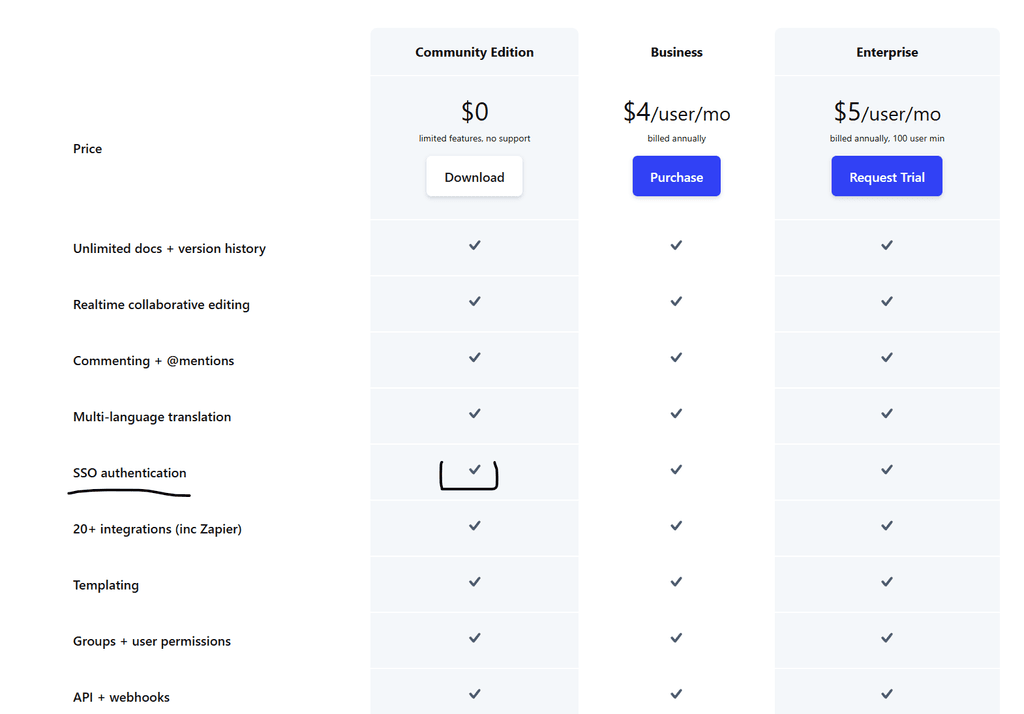
I see you've added another post about it 
If you want good security then set up as below. This is the way I use on all servers and where possible on the provider's external firewall I restrict the port on the VPN IP.
PermitRootLogin prohibit-password
PubkeyAuthentication yes
PasswordAuthentication no
KbdInteractiveAuthentication no
UsePAM yes
prohibit-password - This they started using from version 22.04 as a new security method.
KbdInteractiveAuthentication is the newer line that replaces "ChallengeResponseAuthentication"
Changing port 22 to 202 doesn't make the attack more secure, hackers have started scanning all ports that send back a header that SSH is running on that port.
You have to uncomment the line to make it work.
I am reporting a problem with version 7.5.0:
No exact number of web token
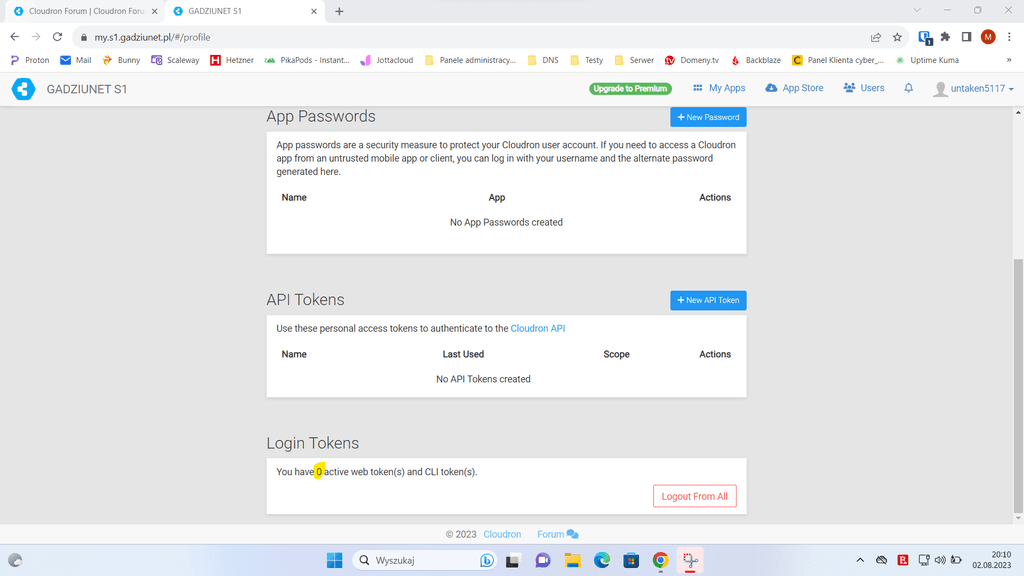
Having a background, the expanded list is hidden
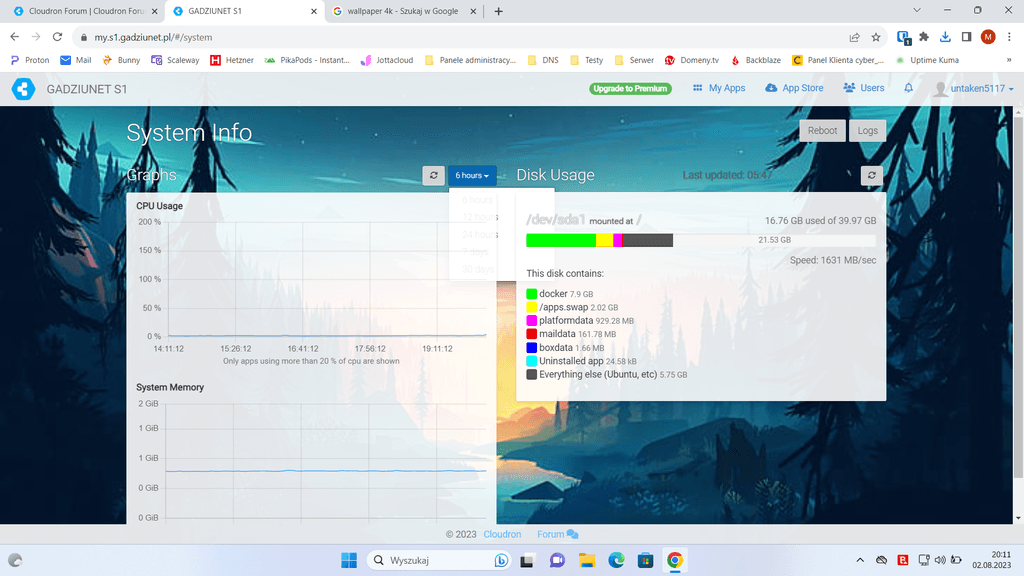
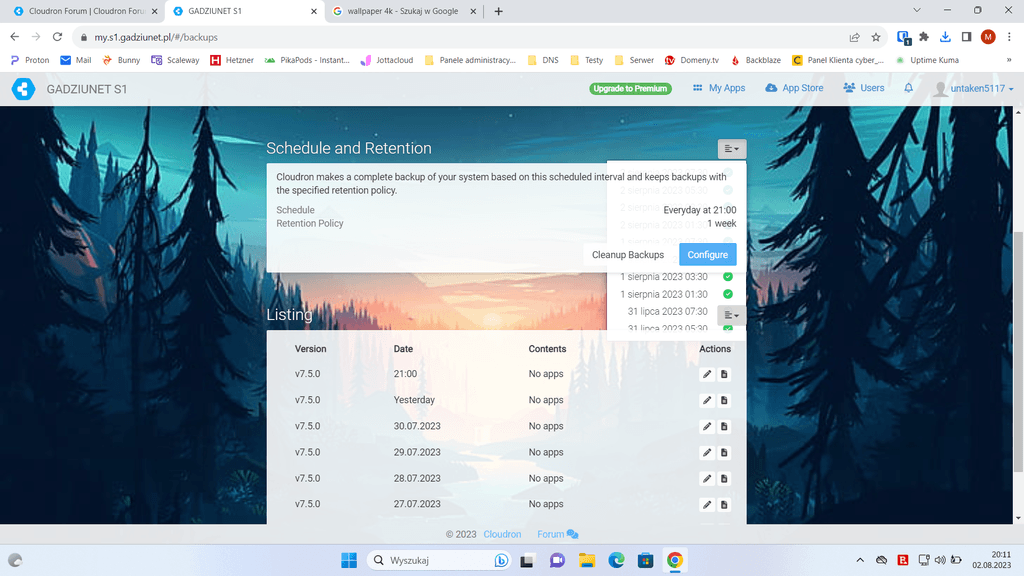
In Ubuntu 24.04 the restart does not work with "systemctl restart sshd", but only with "systemctl restart ssh.service".
Welcome,
I am in the process of looking for a solution to restrict the SSH port outside the firewall, as it is known to be dynamically changed by Cloudron.
After removing the support for TCP Wrappers, I searched for various solutions on how to restrict access through configurations in ‘sshd_config’. The result? Not satisfactory. Completely nothing worked.
While browsing around here and I found a post that you can edit the ‘/home/yellowtent/platformdata/firewall/ports.json’ file and then this will add to the dynamic firewall system.
I was pleased to see that this is a possibility, but a question. Can I add with a public IP address?
Why am I doing this? I want to migrate a server to my country that don't have a firewall system, like at Hetzner, where on all servers I restrict port 22 to a VPN address for security.
I just got access to the test already. I currently have it connected to Nextcloud as an external drive. So far it looks promising  Very fast processing ie uploading large files from the server to disk storage and downloading.
Very fast processing ie uploading large files from the server to disk storage and downloading.
I also confirm with myself the problem with DKIM and DMARC, which test says that “from” does not match the domain.
I did a test on the site: https://unspam.email/results/uPOw0MP1f2
I keep my domains with a Polish service provider - Domeny.tv
They recently launched a global site - Let's Domains with USD, GBP or EUR currencies. There is also an option to buy .coop domains